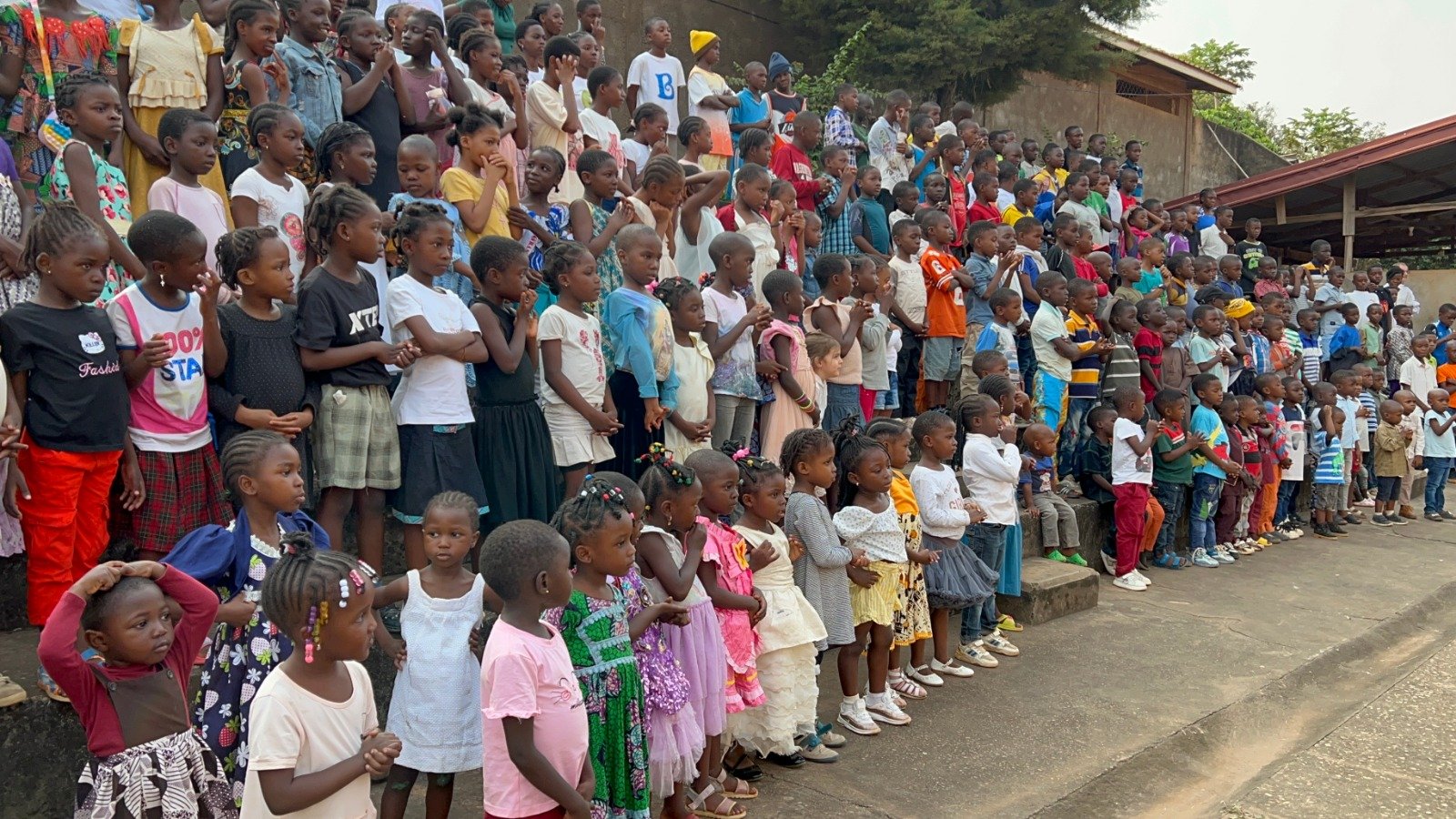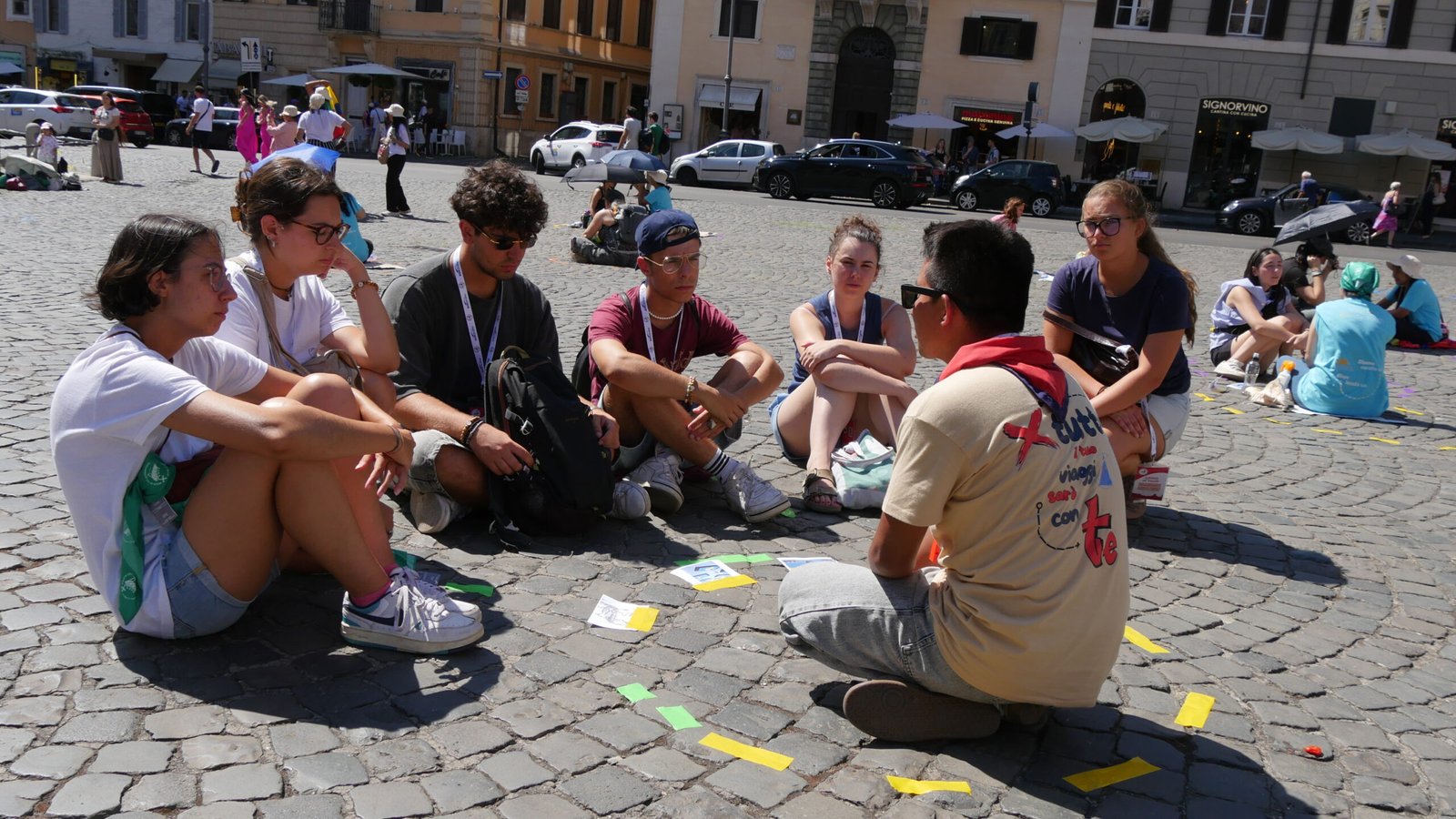
Last Thursday, October 19, the book “Emilia, the gypsy martyr” was presented at the Nuevo Inicio Cultural Center, in the Archbishopric of Granada (Spain). In this event participated Belén Carreras Maya, Idente missionary and Director of the Department of Gypsy Pastoral of the Spanish Episcopal Conference.
Emilia, gypsy and martyr of the religious persecution of the 30´s, during the 20th century in Spain, was beatified on March 25th in Almería, along with other 114 martyrs, thus becoming the first gypsy woman to be beatified.
Juana Sánchez-Gey, Procurator of the Idente women missionaries, was present at the event and shared with us her impression: “It was a very emotional event for me, the room was full of gypsies and non-gypsies, all expectant while listening to Martín Ibarra, author of the biography, who in a simple way narrated the life of this blessed gypsy woman.”
We continue by reproducing below the article by Antonio Jiménez, published in Aleteia, with a summary of Emilia’s biography:
Emilia Fernández is the first beatified gypsy in the world. She was born in Tíjola (Almería), the daughter of a day laborer. She learned how to work the cheesecloth, and at the beginning of 1938, she married by the Gypsy rite to Juan Cortés. Both were arrested and taken to Almería. In prison Emilia learns to pray the rosary and there she converted. For not wanting to reveal who taught her to pray, she is being held in an isolation cell where, in January 1939, gives birth to a girl. Two weeks later after the delivery, Emilia died.
Born in a gypsy family in the small town of Almeria Tíjola, Emilia was a totally normal girl of her time, though all who knew her and have been able to give their testimony about the martyr, say she was especially good and dedicated to the others, “very good, humble and religious” told her cellmate, in the Republican prison of Gachas Colorás.
Thus, before being imprisoned, Emilia was helping her family by making and selling wicker baskets, hence in the famous market of the town she was known as “The basket maker.” Little more could be said about this gypsy girl, humble and hardworking. Except that, like so many others, she ran into the Republican militias.
The militias, who claimed to serve the II Spanish Republic, carried out atrocities on behalf of the Government, which did not know (or did not want to know) the outrages that these groups of armed civilians committed on defenseless civilians.
In any case, the militia men came to call up for “volunteers” (obligated) among the gypsies of Tíjola, who had no intention of losing their lives for a cause they did not believe in, and for a government that had marginalized them secularly.
For this reason, Emilia and her husband, Juan, devised a plan to avoid such forced recruitment. Unfortunately the fact was discovered, and the marriage was summarily tried and detained separately, Juan in a jail for men, and Emilia in one for women.
The pregnant condition of Emilia did not but aggravate the treatment received by the jailers, which softened the inmates, who ended up supporting Emilia, to the point of passing her secretly their rations of food.
During her stay in prison, Emilia began her friendship with another inmate, called Dolores, Catholic and of the same age. During her friendship with Lola, Emilia asks her to teach her to pray, instructing her in praying the rosary. Emilia learns the Our Father, the Hail Mary and the Glory … And she prays constantly.
The director of the prison finds out about this fact, and decides to blackmail Emilia, so that she tells who taught her the Marian prayer. The loyalty, fidelity and generosity of Emilia towards Dolores del Olmo leads her to be locked in an isolation cell, where the conditions were, if possible, even worse. It is in this isolation cell, cold and away from all hygienic conditions, where Emilia gives birth to her daughter, Ángeles, who will be baptized in secret and in danger of even greater punishment.
After the delivery, Emilia’s physical condition is unfortunate, and she is rushed to the hospital, but surprisingly, instead of being treated, she is sent back to prison, where she was left to die of hemorrhages caused by a birth without any medical attention.
Nothing else was known about Emilia, or about her newborn Ángeles. Most likely, the inert body of the mother was thrown into one of the many common graves in the area, while the daughter was, at best, given up for adoption.
The story of Emilia “La Canastera” is one of the 115 stories that this March 25 will be remembered in the beatification of the martyrs of Almeria, but it is the best example in which “the Church does not consider martyr only the one who was killed for living his faith, but to those who, like Emilia, were punished by letting them die”, highlights José Juan Alarcón, Episcopal delegate for the Causes of the Saints of the Almeria diocese.
In addition, for this reason, is published the book Emilia “La Canastera”, martyr of the Rosary (Ediciones Palabra), a book by Martín Ibarra Benlloch that will present the story of the first gypsy woman beatified by the Church.
(https://es.aleteia.org/2017/03/23/emilia-la-canastera-martir-del-rosario-sube-a-los-altares-de-almeria/)
- Banner con el anuncio del acto
- Algunos de los asistentes a la presentación del libro
- Portada del libro presentado, de la editorial Palabra

















